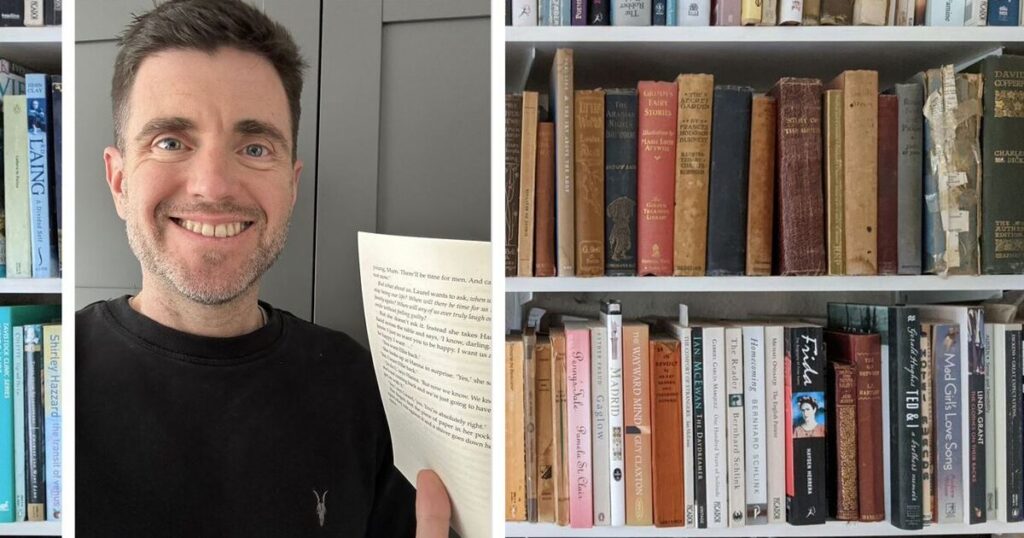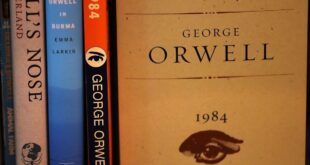
I read books every day and have done for 40 years. Whether it was Tolkien and CS Lewis as a child or any number of great authors past and present as an adult, I appreciate more and more each day the knowledge and mental health benefits that come with reading.
I love all kinds of books, whether it’s non-fiction providing us with the information, education and tools to help improve our lives or fiction providing us with a means to relax, wind down and escape the everyday. I love sports books, like How To Win The Premier League by Ian Graham or Expected Goals by Rory Smith and history books like the incredible The Five by Hallie Rubenhold, which goes to remarkable lengths to piece together the lives of the five women murdered by Jack the Ripper.
And right now, I’m thoroughly enjoying racing through fast-paced and entertaining crime thrillers from the likes of Martin Griffin, James Patterson and, especially, Lisa Jewell. I had never heard of the latter a few weeks ago but I’ve now gone through four of her books in a month. You can find the 10 best books I’ve read recently here.
If I had to pick my favourite book of all time, I would go for Catch-22 by Joseph Heller. I was gripped by its manic absurdity from the very first page. You can see what several of my colleagues picked as their favourite books here — there are some brilliant recommendations you may never have heard of.
But while Catch-22 might be my favourite book, it’s not the one that’s had the greatest impact on me. That would be Ultra-Processed People, an amazing, eye-opening and profoundly important book by Dr Chris Van Tulleken. You can buy it on Amazon here or at Waterstones here.
I can say with confidence that this book has been literally life-changing for me. It’s clear that it’s done the same for other people too. In fact, entire social media communities have sprung up around it where people like me, who are seeking to change their lives for the better, go to seek support, advice and tips from people trying to do the same thing.
In the book, the NHS doctor and BBC science presenter looks in-depth at how much of the “food” we eat today is barely worthy of the name.
The book asks the important question: “Why do we all eat stuff that isn’t food… and why can’t we stop?” It is a staggering look at how a huge proportion of what we now eat (as much as 60% by some estimates) in developed western countries is ultra-processed and a long way from what our families were eating just a few decades ago. Among the many things Dr van Tulleken looks at in painstaking detail are the chemical processes and industrial ingredients that have been increasingly added into our food in recent decades and how the obesity epidemic has exploded at the same time.
I had already started down the path of avoiding as much ultra-processed food as I possibly could (you can read about that here) thanks to the equally impressive and admirable work of people like Professor Tim Spector and Jonathan Wolf, the co-founders of Zoe, as well as scientists and nutitionists like Professor Sarah Berry and Dr Federica Amati, who are also doing an amazing job in educating us about the food we eat and, in the process, railing against the enormously powerful and wealthy food companies that influence so much of what we eat while prioritising profits over our wellbeing.
But Dr van Tulleken’s book made my new lifestyle a lifelong commitment instead of a passing fad, now inspired as much by the desire not to contribute to the profits of massive food corporations as it is by my own wellbeing (and that of my children). In fact, these food companies even sought to influence the author, with one offering him £20,000 in a bid to get him on-side.
The book taught me things I still didn’t know and made me think again about things I had long assumed to be true — for example, he sets out in compelling fashion why he believes sugar and exercise are not as influential as we think when it comes to obesity, at least not when compared to ultra-processed food.
And he describes how large western food corporations have been trying to break into countries with emerging economies, like Brazil, where the consumption of ultra-processed foods has traditionally been lower. Professor Carlos Monteiro of the University of Sao Paolo in Brazil, who specialises in nutrition-related health problems, told Dr van Tulleken in a separate BBC documentary that studies showed a decline in traditional cooking ingredients in Brazil and a rise in the consumption of things like “instant noodles, frozen meals, cookies, desserts” instead, and that the country’s obesity rates were increasing as a result.
I have noticed in the last 18 months or so that there is an increasing awareness of the harm ultra-processed foods can do. Having repeatedly written about the issue, several colleagues and friends have approached me for advice as they seek to cut down their intake too. And if more people reduce the amount of UPF that we eat as a society, Dr Chris van Tulleken will have had a huge part to play in that.
 Latest World Breaking News Online News Portal
Latest World Breaking News Online News Portal






